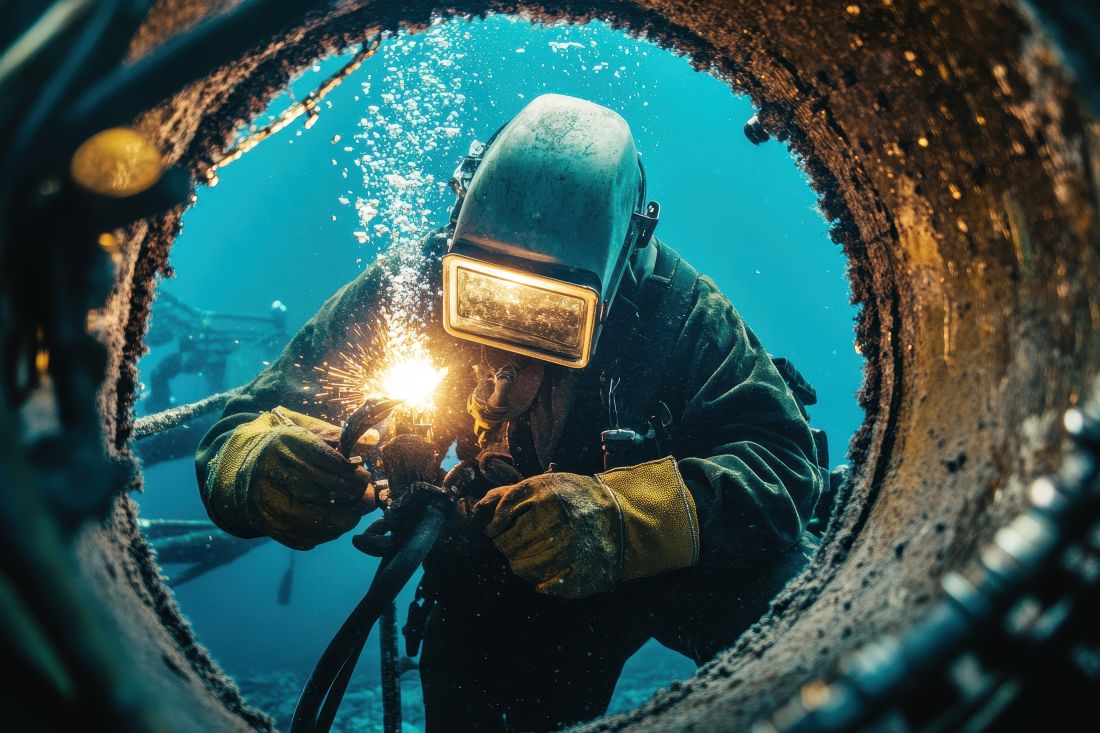
Commercial diving is one of the most fascinating and dangerous professions in the world. Often misunderstood by onlookers, this specialized field combines the challenges of deep-sea diving with the precision of welding. Movies and sensationalized stories have contributed to myths about underwater welding and other commercial diving careers. In this blog, we’ll dive beneath the surface to separate fact from fiction and uncover the truth about this extraordinary career.
Myth 1: Commercial Divers Work at Extreme Depths All the Time
One common misconception is that commercial divers are constantly working in the abyssal depths of the ocean. While some deep-sea projects exist, most commercial underwater welding jobs are just 30 to 200 feet below the surface. The majority of commercial diving jobs involve ship repairs, oil rig maintenance, and pipeline fixes, which usually don’t require extreme depths.
Myth 2: Commercial Diving Jobs Like Underwater Welding Can be Automated
While robotics and automation have threatened many manual labor jobs, most welding tasks are too difficult to replicate and automate. Machines do well with repetitive, predictable tasks, but the dynamic challenges of commercial diving (such as poor visibility, varying water conditions, and on-the-fly adjustments) make human expertise necessary. Although some aspects of manufacturing can be automated or managed remotely, skilled humans are better equipped to handle precise commercial diving tasks.
Myth 3: Underwater Welding Is Just Like Welding on Land—But Wet
Some assume that underwater welding is simply taking a regular welding torch underwater, but that couldn’t be farther from the truth. Underwater welding generally falls into two categories: wet welding and dry welding. Both techniques require more training than a traditional welding education.
Wet welding is directly in the water and relies on fast-setting electrodes that create a gas bubble to shield the weld.
Myth 4: It’s a Short Career Because It’s Too Dangerous
While commercial diving is undeniably risky—facing hazards like decompression sickness, electric shock, and marine life encounters—it’s not necessarily a “short-lived” career. Professional commercial divers work for decades by following strict safety protocols, maintaining peak physical fitness, and knowing their limits. The key to longevity in this field is proper training, experience, and avoiding unnecessary risks. Like any high-stakes profession, those who respect the dangers can build sustainable (and profitable) careers.
A Skilled Welder Can Train to Become an Underwater Welder
Being a great welder on land doesn’t automatically qualify someone for underwater welding, but having previous welding experience is invaluable when transitioning to a career in underwater welding. This career requires dual expertise—mastering welding techniques while also being a certified commercial diver. Divers must undergo rigorous training in underwater navigation, emergency procedures, and hyperbaric medicine. The combination of welding skills, diving proficiency, and the ability to work under extreme pressure (both literally and mentally) makes this one of the most demanding trades in the world.
Commercial Diving: A Rewarding but Challenging Profession
Commercial diving is not for the faint of heart, but it’s also not the exaggerated, Hollywood-style death trap some believe it to be. It offers unique opportunities for those who thrive in high-pressure environments, love adventure, and possess technical skill. The job requires discipline, continuous learning, and a deep respect for the ocean’s power.
For those considering this path, thorough research, proper certifications, and mentorship from experienced divers are essential. Commercial diving isn’t just a job—it’s a lifestyle that demands courage, precision, and a willingness to face the unknown. And for the right person, that’s exactly what makes it so rewarding.
Have more questions about commercial diving? Contact an admissions officer at Commercial Divers International today.
